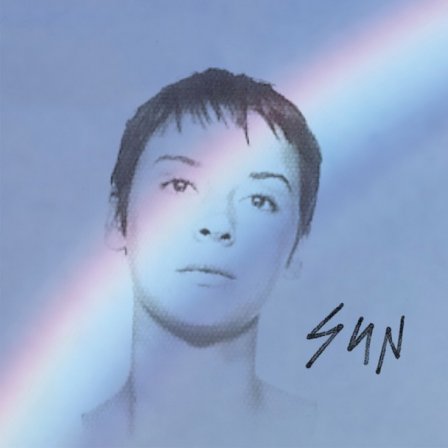01. The quintessential Sun moment of “Cherokee” comes at 3:05, when, as we move into the second chorus, we hear a hawk sampled. It’s not that Chan Marshall’s Cat Power project has hitherto been defined by its subtlety; in fact, it’s her uncomfortable transparency that has most moved me up until now. It has been the way that she has both shamelessly integrated her sources into her own music and shamelessly integrated her personality into her “covers” that has most convinced me of her candor and, frankly, greatness as a songwriter and storyteller. Not so with Sun, however, in which her personality is pointlessly integrated into vacuity and kitsch of present forms. In which “Cherokee” becomes the musical equivalent of Urban Outfitters’ Navajo panties.
02. “Here comes the sun.” Wait. Because Marshall deserves to outlive the mythology that has come to surround her. So Exclaim!, Pitchfork, and The Guardian, among others, all gave us new stories to tell about her (albeit mediated through her). In short, they told us how we ought to listen to Sun almost irrespective of the aesthetic content. So, now, when I hear her reference George Harrison, I know that, as Harrison was when he wrote those words, she too is in a better and more stable place than she once was. It’s true. But this isn’t about her growth or her health; this is not a judgment made upon her personality. This is about the created object that was a response to it, nearly a decade in the making. “Here it comes,” she sings, “in all its burning. Okay, but what happens when the artist’s intent and the listener’s experience fail to correspond so dramatically? I’m stuck watching a dull flame flicker out, and I feel bad saying anything at all.
03. Earlier this year, as a nod to the Palestinians and in a state of “much confusion,” Cat Power canceled their show in Israel. I’ve never considered Marshall a political artist, but with her health has also come, by her admission, a new sense of responsibility. This responsibility takes a strange shape on Sun. In “Ruin,” it’s perhaps most “clearly” defined: ”What are we doin’? We’re sittin’ on a ruin.” Marshall traveled the world and realized that suffering was a global affair. The list of place-names are called out, as if, through an inversion of intent, from JLo’s international dance floor: “Saudi Arabia, Dhaka, Calcutta, Soweto, Mozambique, Istanbul, Rio, Rome, Argentine, Chile, Mexico, Taiwan, Great Britain, Belfast, Spain, Wollongong, Tokyo,” and some nameless island in the Pacific. But what do diverse places have in common other than the privileged, if sympathetic, tourists inhabiting them? The ruin isn’t a place; it’s ambivalence. For instance, you have to first book a show in Israel in order to later cancel it.
04-09. The center is a boring blur. In the hands of Marshall, I really believe that an album like Sun could’ve been interesting and incredibly affecting. Instead, its songs are mostly amalgams of tired pop music tropes/techniques and trite realizations (“You got a right to have that hand you own/ But the moment you hit it, you’re on your own;” “I am what you want/ I am what you’re not/ I want to live my way of living;” “Real life is ordinary, sometimes you don’t wanna live/ Sometimes you gotta do what you don’t wanna do to get away with an unordinary life;” “You’re a human being/ You got a right to scream when they don’t want you to speak/ You got a right to be whatcha want and where you wanna be;” “It’s the useful woman by your side [statue of liberty];” “In my age, it don’t count to have buttercup eyes, but you know some of us we see more than eye to eye”). Only in rare moments do the songs flare up and show themselves as Marshall’s inventions, but the moments, frankly, are too slight to bear articulation here. By and large, the songs trace a series of thick, dark lines backward into the recess of contemporary pop — in all its depth. Take that for what it’s worth.
10. When you write a song about bullying to a child being bullied, and when that song occupies over a fifth of your album’s runtime, and when that song features a cameo by Iggy Pop, then the critic must respond to it accordingly — that is, uncritically. Because Iggy Pop is important (true). Because bullying is bad (true). Because it gets better, because we are the world, because no one else can do it for you (only you can let it in), and because, baby, you’re a firework (true, with caveats). But I’m not just cynical, and of course I feel for (and sympathize with) the song’s subject. And, of course, I find the song to be a sweet (if potentially profitable) gesture. But when your song’s celebrity walk-on feels this pointless and awkward and when your song’s patronizing affirmation falls somewhere between “It’s up to you to be a superhero” and “It’s up to you to be like nobody,” the emotional core shows itself as that hollow, and 10 and a half minutes drags, and drags, and time feels more like a threat than a promise. And I wonder, beyond my responsibility as a critic, whether, after everything Marshall has been through, this is the best she has to give back or if she has just stopped writing music for adults.
11. This is, easily, the worst song I have heard this year.
More about: Cat Power




